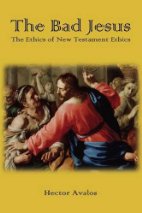
I was once met with frozen silence in a forum set up for Bible scholars when I expressed the view that the Gospel of Mark has a fairy-tale type introduction: “John the Baptist came preaching and all (πᾶσα) the region of Judea and of Jerusalem went out to hear him and were all (πάντες) baptized confessing their sins…” No one reads that introduction in Mark 1:5 literally. “Obviously” not “everybody” went to hear John and be baptized. No? But that is the opening scene of the gospel. To read it as history we have to interpret “all” as an exaggeration. But what if the story is about an ideal scenario?
In struggling through my machine translations of Bruno Bauer’s chapters on gospel criticism I was pleasantly surprised to find the same thought expressed in relation to other passages in the gospels. Recall Jesus telling the would-be disciple who wanted to go and bury his father before setting out to follow him. BB points out that such a scenario can only happen in an ideal story world: no teacher could maintain widespread admiration if he forbade a person from fulfilling obviously meaningful family responsibilities. Readers accept the story at face value because it is an ideal scenario, not a real-life depiction. We know the point is to teach readers the moral of putting Jesus before family ties; but no one seriously expects a teacher to command a man to walk away from his father’s funeral in order to follow him right then and there.
Jesus’ message is to leave behind the world of the “spiritually dead”. The entire exchange is a kind of parable. It is not real life.
Yet, as per the previous post, sometimes very smart people can read the account as a literal life-and-death message that applies in the here-and-now. And that’s when the hell starts. I recall years ago walking away from a religious belief system in the stunned realization that I had been living in a fairy tale world. As children, we may fantasize about living in a fairy tale world but as adults, that game can literally be hell for loved ones, even deadly.
Hector Avalos wrote a book, Bad Jesus, illustrating exactly how a literal reading of the gospels makes good characters — and readers who are devoted to those characters — bad.
Neil Godfrey
Latest posts by Neil Godfrey (see all)
- Encouraging to hear Trump acknowledging the Pope’s passing . . . - 2025-04-22 22:27:32 GMT+0000
- Is it a forgery? How can we know? - 2025-04-13 09:13:03 GMT+0000
- Hard to post right now - 2025-04-07 20:17:07 GMT+0000
If you enjoyed this post, please consider donating to Vridar. Thanks!


“Obviously” not “everybody” went to hear John and be baptized. No?
The objection is neutralized in advance by “Mark” (author): John was in the wilderness so who can deny what happened really in the wilderness?
Someone has proposed that the wilderness served precisely to that function: to confute the otherwise too-much-easy accusation that there were no witnesses of the “fact”. Even more so if the wilderness was the place where Jesus descended already adult on the earth. Note that “Capernaum” in Josephus is not the name of a village but of a source in a desertic place. By having the “word of God descended on John”, one wonders if (1) the word of god originally descended as an adult Jesus in the wilderness, or (2) John worked as the only witness of the descent of Jesus: in the wilderness.
To my understanding, the “wilderness” was simply those places outside the populated area (desert).
“disconnected from any historical realities, by being alien and of a nomadic way of life [in the wilderness].” Just like Abraham: https://vridar.org/2020/10/02/origins-of-the-abraham-narrative/ I had a lengthy comment below that tracing the etymology of ‘Arab’ as coming from your understanding of wilderness [desert] for example.
The wilderness is chosen in order to fulfil scripture (Isaiah 40:3).
Celsus’s words support my point about the apologetical function of the wilderness in the incipit of the Gospel (beyond of the gospel considered: Mark or Marcion), I, 41:
“When you were bathing,” says the Jew, “beside John, you say that what had the appearance of a bird from the air alighted upon you.” And then this same Jew of his, continuing his interrogations, asks, “What credible witness beheld this appearance? Or who heard a voice from heaven declaring you to be the Son of God? What proof is there of it, save your own assertion, and the statement of another of those individuals who have been punished along with you?”
In the Mandaean teachings who follow John the Baptist, the bird hovering over the head of a person has different meaning. It is not a white dove entering from on high from God. It is a black bird. The black bird is symbolic of what is dark, a demon that has descended into a person making him sick. It must be removed by the healer. With this difference of context, consider the Mandaean meaning of Jesus coming to John to be healed, and not proclaimed by God as His only begotten son who pleased Him on that day.
“John the Baptist came preaching and all (πᾶσα) the region of Judea and of Jerusalem went out to hear him and were all (πάντες) baptized confessing their sins…” To read it as history we have to interpret “all” as an exaggeration. But what if the story is about an ideal scenario?
In my studies of John the Baptist, prophet of the Mandaeans, the ideal scenario would be what John actually did, and that isn’t easy to interpret. Information was left out, words were changed. Healing involved entering “rivers of light from the light world”–words specifically stated in Mandaean teachings.